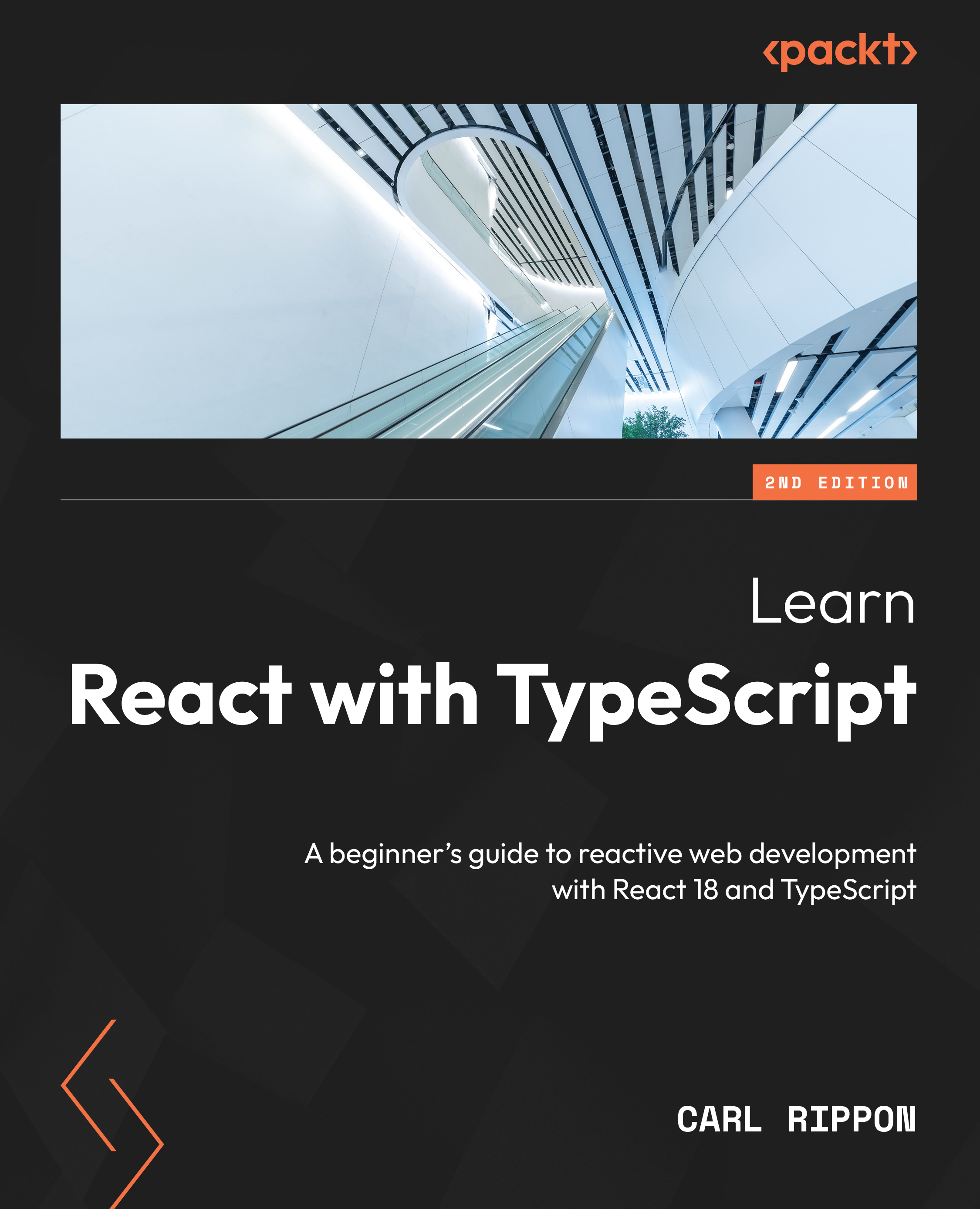-
Book Overview & Buying

-
Table Of Contents

Learn React with TypeScript - Second Edition
By :

Learn React with TypeScript
By:
Overview of this book
Reading, navigating, and debugging a large frontend codebase is a major issue faced by frontend developers. This book is designed to help web developers like you learn about ReactJS and TypeScript, both of which power large-scale apps for many organizations.
This second edition of Learn React with TypeScript is updated, enhanced, and improved to cover new features of React 18 including hooks, state management libraries, and features of TypeScript 4. The book will enable you to create well-structured and reusable React components that are easy to read and maintain, leveraging modern design patterns.
You’ll be able to ensure that all your components are type-safe, making the most of TypeScript features, including some advanced types. You’ll also learn how to manage complex states using Redux and how to interact with a GraphQL web API. Finally, you’ll discover how to write robust unit tests for React components using Jest.
By the end of the book, you’ll be well-equipped to use both React and TypeScript.
Table of Contents (19 chapters)
Preface
Part 1: Introduction
 Free Chapter
Free Chapter
Chapter 1: Introducing React
Chapter 2: Introducing TypeScript
Chapter 3: Setting Up React and TypeScript
Chapter 4: Using React Hooks
Part 2: App Fundamentals
Chapter 5: Approaches to Styling React Frontends
Chapter 6: Routing with React Router
Chapter 7: Working with Forms
Part 3: Data
Chapter 8: State Management
Chapter 9: Interacting with RESTful APIs
Chapter 10: Interacting with GraphQL APIs
Part 4: Advanced React
Chapter 11: Reusable Components
Chapter 12: Unit Testing with Jest and React Testing Library
Index
